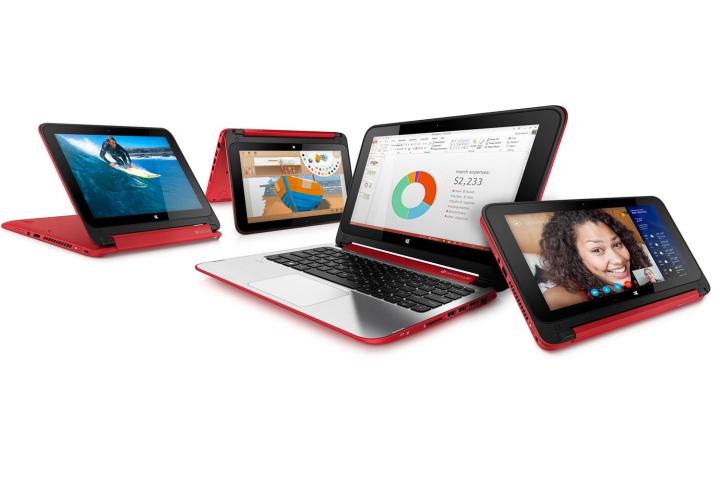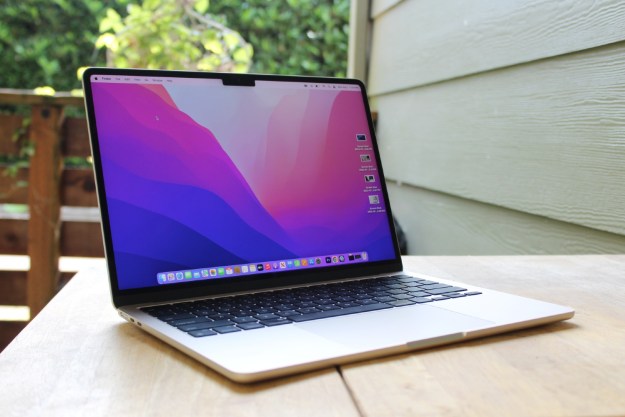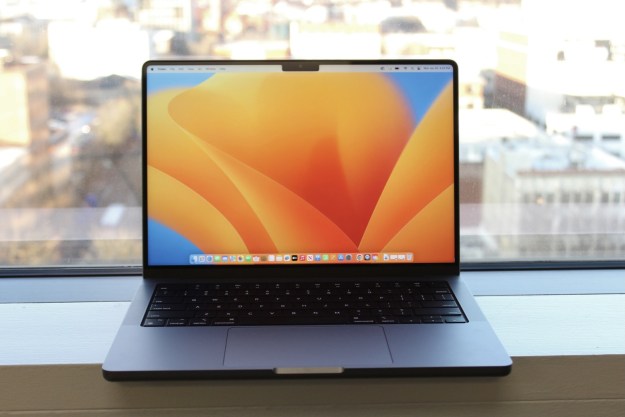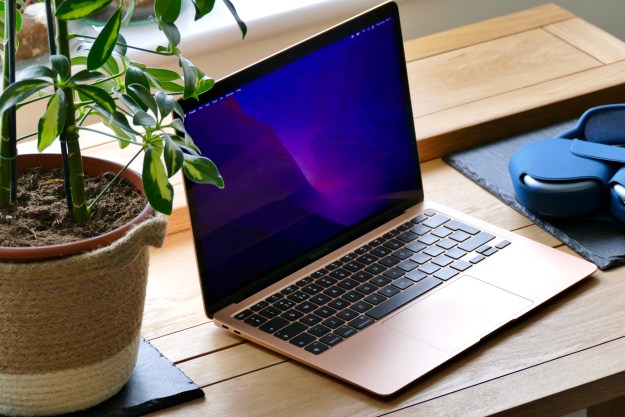
As a product reviewer, I’ve seen dozens of convertible laptops since the launch of Windows 8, from the impressively complex to the clunky and woefully underpowered. And yet, news flash: they don’t seem to be selling very well.
Why? Well, it’s complicated. Combine the legitimate complaints/confusion/general aversion to change over Windows 8 with what seems to be dozens of different convertible designs, and most consumers are too overwhelmed to know what to buy. Is it any wonder that they’re flocking to tablets, smartphones, and Macs?
But there are also millions of consumers who either can’t afford to pay $1,000 for a MacBook Air, or actually want to stick with Windows because it’s familiar, or because they have money invested in Windows-based software. Also, the average consumer doesn’t need anywhere near as much CPU muscle as the power that even the lowest-end MacBooks deliver. So how can Windows device makers win these consumers back?
Give them a device that’s familiar, attractive, lightweight, long-lasting, and affordable. This seems entirely possible if Intel and PC sellers would team up to deliver laptops based on power-efficient, low-cost Bay Trail processors. We’ve seen Bay Trail tablets, like Dell’s Venue 8 Pro, selling for as little as $200. We’ve also seen a few Bay Trail convertibles–most notably, Asus’ T100, a 10-inch Netbook-like device with a removable screen that was generally well-received by reviewers which was hard to find in stock over the recent holiday season at its $350 starting price.
The average consumer doesn’t need anywhere near as much CPU muscle as the power that even the lowest-end MacBooks deliver.
More recently, HP announced a larger 11-inch Bay Trail convertible with a 360-degree hinge, much like Lenovo’s Yoga, dubbed the Pavilion x360. This device will start at $400, and sports a familiar laptop-like selection of ports, but it also looks a bit chunky. On top of that, the fact that HP hasn’t said much about potential battery life is probably a bad sign.
What I’d like to see, and what I’m fairly sure would sell well, is a professional-looking, IPS touchscreen Bay Trail laptop that ditches the complicated, cost-increasing convertible hinge altogether. That should allow prices to dip even further. If Asus can sell the T100 for $350 with a removable screen, then there’s no reason someone couldn’t make an 11- or 13-inch Bay Trail laptop based around similar internals, including solid-state storage, for between $300 and $400—especially if Microsoft is indeed lowering the price of Windows to better compete with Android.
There’s also no reason a device like this shouldn’t get at least 10 hours of battery life, weigh less than three pounds (for the 11-inch model, anyway), and be about 0.7-inches thick. And just like Bay-Trail tablets, it could be fanless, which would allow it to operate silently.
Sure, the profit margins on a device like this won’t be as high as, say, a $900 Ultrabook. But a good Bay Trail laptop could slow the exodus away from Windows, would likely sell in much higher volumes than pricier systems, and would also entice some tablet users who miss physical keyboards to come back to Windows.
A device like this, with at least 4GB of RAM and 64GB of storage, would be my ideal on-the-go productivity device, with enough performance for Office, Web browsing, and some light image editing. For many, this level of performance is all that’s needed. Even an Intel Core i3 CPU is overkill for many, especially when CPU power is traded for battery life. Microsoft, Intel, and PC makers need to start thinking along these lines instead of shoving overpowered, over-complicated systems on users who don’t need them and can’t afford them.
If they don’t, millions more will switch to Android and iOS, and the Windows PC will become a niche device primarily used by professionals, gamers, and those who need more CPU power than Qualcomm, Apple, and Samsung can cram into the latest-generation of mobile chips.
Editors' Recommendations
- Get this Asus laptop with a year of Microsoft Office for $199
- Best Buy’s deal of the day is $150 off the MacBook Air M2
- The best MacBook to buy in 2024
- Best laptop deals: Save on the Dell XPS 14, MacBook Pro 16 and more
- Best student laptop deals: Laptops for college from $215


